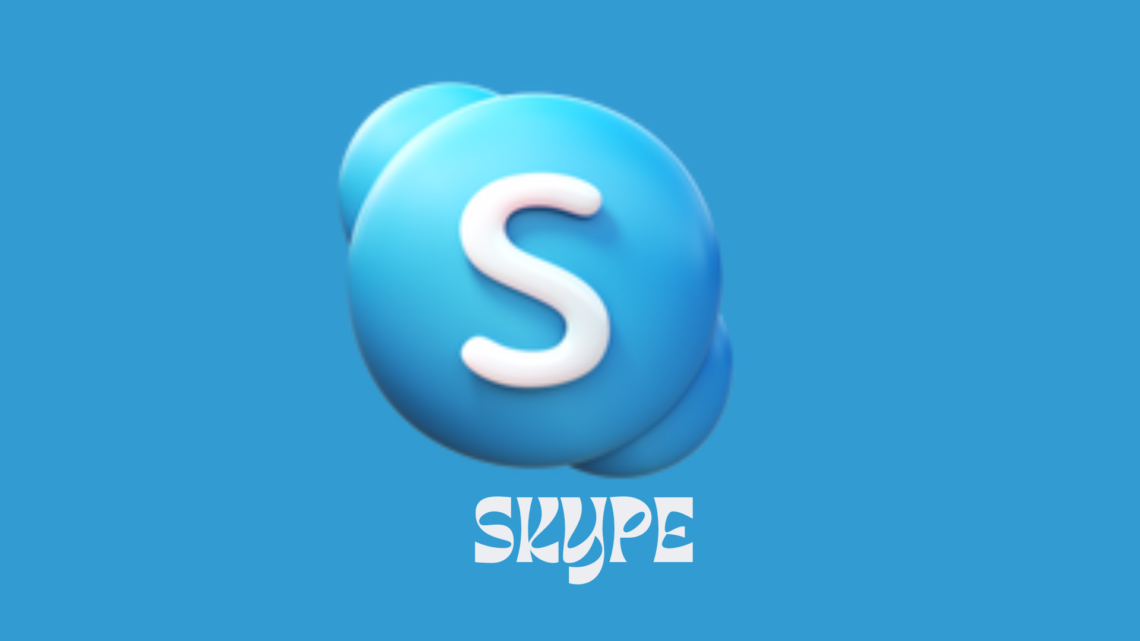In a groundbreaking announcement, Microsoft revealed that Skype will close in May 2025. After nearly two decades of connecting people worldwide, this iconic communication platform is shutting down. For millions of users who rely on Skype for both personal and professional communications, this news is significant. So, what does Skype’s closure mean for users, businesses, and the future of digital communication?
In this article, we’ll explore the reasons behind Skype’s shutdown, its impact on the digital world, and the alternatives available to those who depend on it for messaging, video calls, and collaboration
Why Skype Will Close: What Happened?
Skype’s closing is a response to several evolving factors in the tech world. As of May 2025, Microsoft will officially pull the plug on Skype, redirecting users to its other communication products like Microsoft Teams. The decision to discontinue Skype comes after years of shifting priorities, with Microsoft prioritizing Teams as its flagship communication platform, especially for business and enterprise users.
The Rise of Microsoft Teams
Microsoft Teams has gained significant traction over the past few years, particularly in the business and educational sectors. With features like collaboration, document sharing, and team-specific chat rooms, Microsoft Teams is becoming the preferred communication tool for organizations, leaving Skype to fall behind. The transition to Teams is part of Microsoft’s broader strategy to consolidate its offerings.
Declining User Base
Over time, Skype’s user base has dwindled. While it still boasts millions of active users, younger generations prefer more modern platforms like Zoom, WhatsApp, and Slack. Skype’s reputation for being outdated and lacking in features compared to competitors made it harder to retain users.
Security and Integration Challenges
Skype has faced increasing security concerns over the years. As cyber threats become more sophisticated, platforms like Skype, which were originally built for personal use, struggle to adapt to business-level security needs. Teams, on the other hand, integrates better with Microsoft’s ecosystem and offers more robust security features, making it a better fit for the modern enterprise
What Does Skype’s Closure Mean for Users?
The closure of Skype in May 2025 will have various implications for users worldwide. It’s important to understand how this change will impact your communication habits and what steps you should take to prepare for the transition.
Impact on Personal Users
For personal users, Skype was once the go-to tool for making voice calls, video chats, and even sending instant messages. The shift towards alternatives may feel disorienting. Many people have relied on Skype for staying in touch with loved ones across distances.
- Video Calls: Skype has been a staple for virtual family gatherings. Users will now need to find alternatives that offer similar features and ease of use.
- Instant Messaging: Skype’s messaging capabilities will be missed by many, as it allowed for quick exchanges across devices. Users may need to adapt to services like WhatsApp or Facebook Messenger for similar functionality.
Impact on Businesses
For businesses, Skype has historically been used for meetings, collaboration, and client communications. However, Microsoft Teams has steadily replaced Skype as the go-to platform for businesses. Teams offers more features specifically designed for workplace collaboration, such as the ability to organize meetings, share documents in real-time, and integrate with Office 365.
- Client Communications: Businesses that rely on Skype for client meetings and calls will need to make the transition to Teams or other video conferencing platforms.
- Collaboration Tools: Skype’s lack of advanced collaboration features means many businesses have already shifted to more robust tools like Slack or Zoom.
Alternatives to Skype After May 2025
With Skype’s closure looming, it’s essential to explore the alternatives that will replace its services. Whether you are a casual user or a business looking to adapt, here are some of the best alternatives to Skype.
1. Microsoft Teams
For business users, Microsoft Teams is the obvious choice. It provides a comprehensive suite of collaboration tools that extend beyond video calls and messaging.
- Collaboration Features: Teams allows for seamless document sharing, chat threads, and integration with Microsoft 365 applications.
- Security: Being integrated into the Microsoft ecosystem, Teams offers enterprise-level security that Skype lacked.
- Ease of Transition: If you are already using Microsoft Office products, transitioning to Teams will be relatively simple.
2. Zoom
Zoom became popular during the COVID-19 pandemic and has continued to thrive as a reliable video conferencing tool. It is often used by businesses, educational institutions, and even for casual gatherings.
- High-Quality Video and Audio: Zoom offers HD video and audio, ensuring crystal-clear calls.
- Easy Scheduling: Zoom’s built-in scheduling features make it simple to organize virtual meetings.
3. WhatsApp
For personal communication, WhatsApp has become a go-to choice. It offers video calling, instant messaging, and the ability to send media files.
- Free Calls: WhatsApp allows free voice and video calls over Wi-Fi or mobile data.
- End-to-End Encryption: WhatsApp prioritizes customer secrecy with end-to-end encryption.
4. Google Meet
Google Meet is another solid option for both personal and business communications. It integrates well with Google Workspace, making it an ideal choice for those already using Google’s suite of tools.
- Integration with Google Services: Google Meet integrates seamlessly with Gmail, Google Calendar, and Google Drive, allowing for easy scheduling and document sharing.
- No Software Installation: Unlike Skype, Google Meet works directly from your web browser, meaning no software installation is needed.
5. Slack
Slack is a top contender for businesses looking to foster better team communication? While it’s primarily a messaging platform, it also offers video calls, making it a good Skype alternative for work.
- Team Collaboration: Slack allows teams to communicate in channels, making it easy to organize conversations around specific topics.
- Integration with Other Tools: Slack can integrate with a wide range of third-party applications, making it highly customizable
How to Prepare for Skype’s Shutdown in May 2025
To ensure a smooth transition when Skype will close, here are some actionable steps you can take:
1. Backup Your Skype Data
If you’ve been using Skype for a long time, you may have important messages, contacts, and call histories. Be sure to back up your data before the closure. Skype provides options to export your chat history, so make sure to save important conversations.
2. Migrate to an Alternative Platform
Start exploring the alternatives mentioned earlier, and choose one that fits your needs. Whether it’s Microsoft Teams for business or Zoom for casual video chats, make sure you’re comfortable with the platform you select before Skype shuts down.
3. Inform Your Contacts
Let your friends, family, and business contacts know about the transition. If you’ve been using Skype to communicate with them, they may need time to set up their new accounts on platforms like Zoom, Google Meet, or Microsoft Teams.
4. Familiarize Yourself with New Features
Each alternative platform has its own set of features. Take time to learn how to use them effectively. For instance, if you’re switching to Zoom for video calls, familiarize yourself with its scheduling tools, virtual backgrounds, and breakout rooms
Conclusion: Skype Will Close, but the Future of Communication is Bright
Skype will close in May 2025 marks the end of an era for millions of users around the world. While it’s sad to see this iconic tool go, it’s important to remember that there are many alternatives available to replace its functionality. Whether you’re a business professional or a casual user, transitioning to new platforms like Microsoft Teams, Zoom, or Google Meet can help you stay connected and productive.
The world of digital communication continues to evolve, and this shift toward more specialized tools like Teams is an indication of how technology is adapting to the needs of businesses and consumers. Embrace the change, explore new tools, and keep communicating!








Leave a Comment